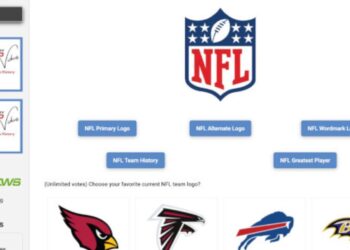Betting exchanges have emerged as a groundbreaking development in the world of sports betting, offering a unique and dynamic alternative to traditional bookmakers. Unlike conventional betting where one bets against the bookmaker, betting exchanges allow punters to bet against each other, providing a platform for matching bets between users who wish to back (bet on) and lay (bet against) outcomes.
The Mechanics of Betting Exchanges: How They Operate
The operational model of bet exchanges is straightforward yet innovative. It functions as a marketplace, where odds are determined by the supply and demand of bets rather than a bookmaker’s fixed odds. This system enables better odds and more competitive betting opportunities. Punters have the freedom to propose their odds or accept odds offered by others, leading to a more interactive and engaging betting experience.
Key Features:
- User-driven Odds: Odds are not set by the house but by the users, often leading to better value.
- Back and Lay Betting: Enables users to take on the role of a bettor or a bookmaker.
- Market Depth: Displays the range of odds and the liquidity available in the market.
Advantages of Using Betting Exchanges
1. Better Odds and Value
Due to the absence of a traditional bookmaker’s margin, betting exchanges often offer better odds, providing more value to the punter. This aspect is particularly advantageous for seasoned bettors who can spot value in fluctuating market prices.
2. Flexibility and Control
Betting exchanges empower punters with the flexibility to set their own odds and choose from a wider range of betting options. This control extends to the ability to ‘lay’ bets, effectively allowing users to act as a bookmaker.
3. In-Play Betting
In-play or live betting is a significant feature of betting exchanges, offering the opportunity to bet on events as they unfold. This adds an exciting real-time dimension to sports betting.
4. Transparency
The open-market nature of exchanges ensures transparency, with odds and market depth visible to all users, fostering a fair and straightforward betting environment.

How Betting Exchanges Differ from Traditional Bookmakers
Feature
Betting Exchange
Traditional Bookmaker
Odds
User-determined
Set by the bookmaker
Betting Options
Back and Lay
Primarily Back
Market Pricing
Dynamic, based on supply and demand
Fixed, with built-in margins
Flexibility
High, with the ability to trade positions
Limited
Trading on Betting Exchanges: A Strategy For Success
Trading on betting exchanges involves buying and selling bets on sporting outcomes, akin to trading shares on the stock market. This approach requires understanding market movements and timing trades for maximum profit. Successful trading hinges on keen observation, disciplined risk management, and an in-depth understanding of the sport in question.

Embracing The Future: The Growing Popularity of Betting Exchanges
Betting exchanges are rapidly gaining popularity among punters for their innovative approach to betting. They are transforming the landscape of sports betting, offering a more interactive, flexible, and potentially profitable experience. As technology advances and betting habits evolve, betting exchanges are poised to play an increasingly significant role in the world of sports betting.
Conclusion: The Future of Betting Lies in Exchanges
Betting exchanges represent a paradigm shift in sports betting, providing a platform that offers greater odds, more control, and increased transparency. They stand as a testament to the evolving nature of the betting industry, appealing to a new generation of savvy punters seeking a more engaging and potentially profitable betting experience. As we continue to witness the growth and adoption of betting exchanges, it is clear that they are not just an alternative to traditional bookmakers, but a significant evolution in the world of sports betting.







